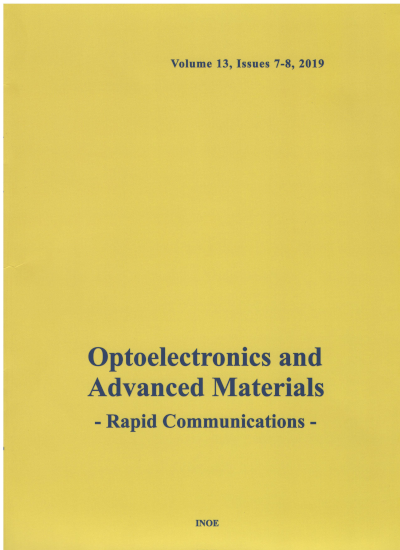Abstract
“Green” nanotechnology is in spotlight of scientific research, over last decades. This paper describes a “green” method for weed herbs valorization. Thus, Cirsium arvense was converted into two type of materials with high biological value: silver nanoparticles (AgNPs) coated and no-coated with lemon pectin. AgNPs were phyto-generated using Cirsium arvense plant extract as a reducing and stabilizing agent, with superior inactivation activity against Escherichia coli (E. coli). The obtained samples were characterized by the following methods: UV-Vis absorption spectroscopy, DLS, SEM, and zeta potential measurements. Cirsium – derived AgNPs showed mean diameters of 60 nm, while pectin-coated particles presented higher size values ranging from 200 to 400 nm, evaluated by SEM investigations. The antioxidant activity assayed by chemiluminescence technique, ranged between 93.85 and 97.75% for the obtained Cirsium –silver materials. The silver containing materials caused a sharp decrease in bacterial cell growth from >600 CFUs/mL to <100 CFUs/mL, E. coli. Our findings are promising, the developed materials could be applied in bio-photonics and biomedical fields.
Keywords
“Green” silver nanoparticles, Bio-design, Lemon pectin, Cirsium arvense, Bio-activites (antioxidant and antibacterial activity).
Citation
M. E. BARBINTA-PATRASCU, C. UNGUREANU, D. BESLIU, A. LAZEA-STOYANOVA, L. IOSIF, Bio-active nanomaterials phyto-generated from weed herb Cirsium arvense, Optoelectronics and Advanced Materials - Rapid Communications, 14, 9-10, September-October 2020, pp.459-465 (2020).
Submitted at: Aug. 26, 2020
Accepted at: Oct. 21, 2020
